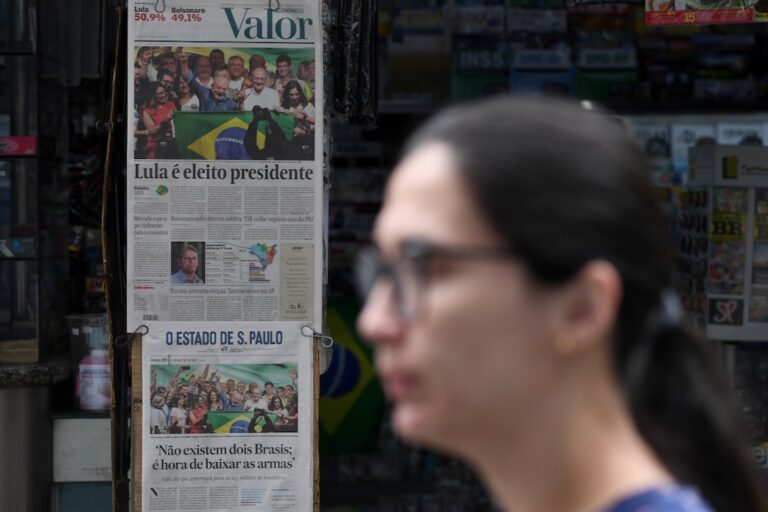(IFJ/IFEX) – The following is a 28 August 2001 IFJ media release: Journalists Condemn Brazilian Military Over Use of Fake Press Cards for Spying The International Federation of Journalists today condemned Brazil over reports that military and secret service personnel have used fake press cards to help them spy on opposition and civil society groups. […]
(IFJ/IFEX) – The following is a 28 August 2001 IFJ media release:
Journalists Condemn Brazilian Military Over Use of Fake Press Cards for Spying
The International Federation of Journalists today condemned Brazil over reports that military and secret service personnel have used fake press cards to help them spy on opposition and civil society groups.
The IFJ, the world’s largest journalists’ group, joined with its member organisation in Brazil, the National Federation of Journalists (FENAJ), in calls for a full explanation from the authorities after reports in the leading daily Folha de Sao Paolo about the use of false press cards by army intelligence staff to infiltrate civic groups.
“This is an outrageous violation of journalists’ rights that puts every honest reporter at risk,” said Aidan White, IFJ General Secretary. “It undermines the principles of press freedom and democracy and should be condemned by the authorities.”
In Brazil press cards are issued with legal authority by journalists’ unions in each of the country’s 31 regions. FENAJ, which groups the unions under a federal structure, has called for a full inquiry into the reports, which it has denounced as criminal action.
The newspaper reported that the use of false press cards was used in a number of infiltration operations by at least six agents who acted in the name of a non-existent news agency, RP Free-Press.
The IFJ says that the Brazilian action is the latest in a series of incidents in which police or security forces have pretended to be journalists to try to trap criminals or protesters.
“During the Genoa G8 riots we had reports of police disguising themselves as journalists and similar problems have been reported in the United States and other parts of the world,” said Aidan White. “The problem is widespread and raises serious concerns, both over the safety of journalists and the undemocratic nature of policing.”
The IFJ Represents around 500,000 journalists in 106 countries
Other IFJ Media Releases are available on the Web: http://www.ifj.org/publications/press/news.html


